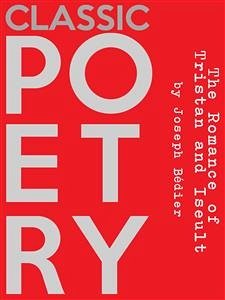Tristan and Iseult is a tale made popular during the 12th century through French medieval poetry, inspired by Celtic legend and possibly the 11th century Persian story Vis and Rāmin. It has become an influential romance and tragedy, retold in numerous sources with many variations. The tragic story is of the adulterous love between the Cornish knight Tristan (Tristram) and the Irish princess Iseult (Isolde, Yseult, etc.). The narrative predates and most likely influenced the Arthurian romance of Lancelot and Guinevere, and has had a substantial impact on Western art, the idea of romantic love and literature since it first appeared in the 12th century. While the details of the story differ from one author to another, the overall plot structure remains much the same.
Bitte wählen Sie Ihr Anliegen aus.
Rechnungen
Retourenschein anfordern
Bestellstatus
Storno







